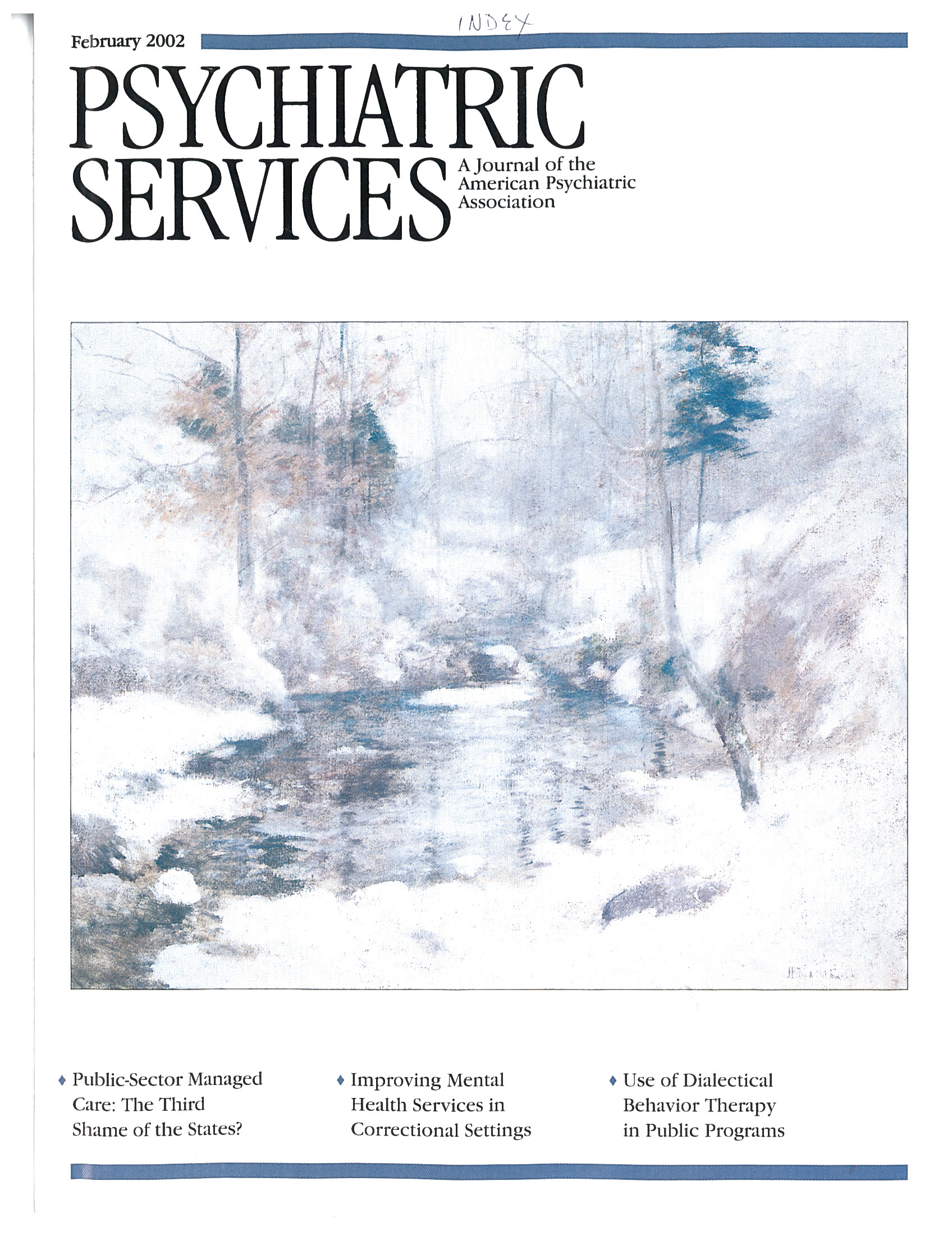To the Editor: In the September issue, Schoenwald and Hoagwood (
1) provided a thoughtful and well-organized overview of factors that influence the transportability of mental health innovations in effectiveness and dissemination studies. They quite rightly highlighted the importance of the intervention's complexity, organizational support, and a favorable therapeutic or ideological climate among clinicians who are asked to use the innovation. Our own work in the design of modules for teaching social and independent living skills to persons with serious and persistent mental disorders has proceeded from validating these interventions in efficacy studies, demonstrating their effectiveness in field studies, and then disseminating them throughout the world.
The first generation of modules, which was developed in the crucible of an ordinary community mental health center, were shown to have efficacy and to be associated with consumer satisfaction (
2). The next step was to select six modules that appeared to be most applicable to the full range of U.S. community mental health centers and to offer them to 40 such centers in 22 states. These centers were chosen on the basis of the enthusiasm expressed by staff and administrators from more than 100 centers that asked to participate in the dissemination program. After one year, we found significant improvements in their attitudes toward the modules and their familiarity with the principles on which the modules are based (
3). In addition, in contrast to the 10 percent adoption rate reported in the Fairweather Lodge dissemination effort, our two-day training program followed by six peer-mediated in-service training sessions led to an adoption rate of 67 percent.
A second generation of modules, designed to be even more user-friendly, have been shown to be efficacious (
4) and to be effective in field studies when used with fidelity (
5). They have been disseminated to several hundred mental health facilities in the United States and elsewhere, with only minor language and cultural adaptations for use in 26 countries using 17 languages, including Japanese, Chinese, Arabic, Russian, French, Dutch, German, Spanish, and Swedish.
Key elements in the successful dissemination of the modules have included live demonstrations of the intervention at the site where the clinicians were considering adoption, identification of "internal champions" for the innovation at each site and ongoing consultation with them, mobilization of top and middle managers to visibly and tangibly support use of the modules, provision of feedback and support to clinicians through newsletters and meetings, and encouragement of clinicians to "reinvent" the modules to fit their own circumstances, needs, and constraints.
Schoenwald and Hoagwood carefully articulated these factors in their article (
1). They also made sound recommendations to promote action research that builds collaborations between the researchers who design novel, evidence-based interventions and the managers and clinicians who are expected to adopt them. We intend to develop and maintain such collaborations in the next phase of our studies on dissemination of skills training programs for people with mental disabilities.

